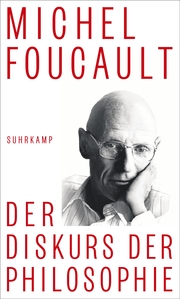Hermeneutics and Phenomenology in Paul Ricoeur (E-Book, PDF)
Hermeneutics and Phenomenology in Paul Ricoeur
eBook - Between Text and Phenomenon, Contributions to Hermeneutics
Bibliographische Informationen
Format: Digitale Rechteverwaltung: Digitales Wasserzeichen
Beschreibung
Hermeneutics and Phenomenology in Paul Ricoeur: Between Text and Phenomenon calls attention to the dynamic interaction that takes place between hermeneutics and phenomenology in Ricoeurs thought. It could be said that Ricoeurs thought is placed under a twofold demand: between the rigor of the text and the requirements of the phenomenon. The rigor of the text calls for fidelity to what the text actually says, while the requirement of the phenomenon is established by the Husserlian call to return to the things themselves. These two demands are interwoven insofar as there is a hermeneutic component of the phenomenological attempt to go beyond the surface of things to their deeper meaning, just as there is a phenomenological component of the hermeneutic attempt to establish a critical distance toward the world to which we belong. For this reason, Ricoeurs thought involves a back and forth movement between the text and the phenomenon. Although this double movement was a theme of many of Ricoeurs essays in the middle of his career, the essays in this book suggest that hermeneutic phenomenology remains implicit throughout his work. The chapters aim to highlight, in much greater detail, how this back and forth movement between phenomenology and hermeneutics takes place with respect to many important philosophical themes, including the experience of the body, history, language, memory, personal identity, and intersubjectivity.
Autorenportrait
Scott Davidson is Professor and Chair of the Department of Philosophy at Oklahoma City University. His research focuses primarily on French phenomenology, and his publications includeTotality and Infinity at 50 (2012) andRicoeur Across the Disciplines (2010). He has also translated several books from French, including most recently, Michel Henry,From Communism to Capitalism (2014) and Didier Franck,Flesh and Body (2014). He is currently an editor of Journal of French and Francophone Philosophy.
Marc-Antoine Vallée is Professor at Collège Édouard-Montpetit (Canada). He is a specialist of hermeneutics and phenomenology (Ricoeur, Gadamer, Heidegger). He is the author ofGadamer et Ric½ur. La conception herméneutique du langage (Presses Universitaires de Rennes, 2012) andLe sujet herméneutique. Étude sur la pensée de Paul Ric½ur, (Éditions universitaires européennes, 2010).
Inhalt
Introduction.- Part I: From Existentialism and Phenomenology to Hermeneutics.- Chapter 1: Ricoeurs Early Approaches to the Ontological Question.- Chapter 2: Distanciation and Epoché: The Influence of Husserl on Ricoeur's Hermeneutics.- Chapter 3: Thinking the Flesh with Paul Ricoeur.- Part II: Hermeneutic Phenomenology of the Self.- Chapter 4: Identity and Selfhood: Paul Ricoeurs Contribution and its Continuations.- Chapter 5: For a Genealogy of Ipseity.- Chapter 6: The World of Life and the World of the Text: Two Contradictory Paradigms?.- Part III: Hermeneutic Phenomenology of Tradition, Memory and History.- Chapter 7: Word, Writing, Tradition.- Chapter 8: Involuntary Memory and Apprenticeship to the Truth: Ricoeur re-reads Proust.- Chapter 9: Memory, Space, Oblivion.- Chapter 10: What Kind of Past is the Referent of Historical Narratives? Ricoeurs Critique of Heidegger.- Part IV: Challenges and Future Directions for a Hermeneutic Phenomenology.- Chapter 11: The Conflict of Hermeneutics.- Chapter 12: Intersectional Hermeneutics.- Chapter 13: Hermeneutics and Truth: FromAltheia to Attestation.- Chapter 14: Constructing Ricoeurs Hermeneutical Theory of Truth.
E-Book Informationen
„eBooks“ sind digitale Bücher. Um eBooks lesen zu können, wird entweder eine spezielle Software für Computer, Tablets und Smartphones oder ein eBook-Reader benötigt. Da es eBooks in unterschieldichen Formaten gibt, gilt es, folgendes zu beachten.
Von uns werden digitale Bücher in drei Formaten ausgeliefert. Die Formate sind EPUB mit DRM (Digital Rights Management), EPUB ohne DRM und PDF. Bei den Formaten PDF und EPUB ohne DRM müssen Sie lediglich prüfen, ob Ihr eBook-Reader kompatibel ist. Wenn ein Format mit DRM genutzt wird, besteht zusätzlich die Notwendigkeit, dass Sie einen kostenlosen Adobe® Digital Editions Account besitzen. Wenn Sie ein eBook, das Adobe® Digital Editions benötigt, herunterladen, erhalten Sie eine ASCM-Datei, die zu Digital Editions hinzugefügt und mit Ihrem Account verknüpft werden muss. Einige eBook-Reader (zum Beispiel PocketBook Touch) unterstützen auch das direkte Eingeben der Login-Daten des Adobe Accounts – somit können diese ASCM-Dateien direkt auf das betreffende Gerät kopiert werden.
Da eBooks nur für eine begrenzte Zeit – in der Regel 6 Monate – herunterladbar sind, sollten Sie stets eine Sicherheitskopie auf einem Dauerspeicher (Festplatte, USB-Stick oder CD) anlegen. Außerdem ist die Anzahl der Downloads auf maximal 5 begrenzt.
Weitere Artikel aus der Kategorie "Philosophie/20., 21. Jahrhundert"
Neuerscheinung

Neuerscheinung

Neuerscheinung

Neuerscheinung






